Prednol Tablet 16 Mg
Prednol is in tablet form. Contains the active ingredient methylprednisolon. It is included in a class of drugs called corticosteroids. Corticosteroids are produced naturally in your body and are important for many body functions.
Prednol can be prescribed to you for the following conditions;
- Brain (e.g. meningitis disease, which is a fire of the cerebral cortex),
- Stomach and intestines (e.g. Crohn’s disease, ulcerative colitis), which is inflammatory bowel diseases,
- Blood and blood vessels (for example, leukemia, a type of blood cancer),
- Eye (e.g. optic neatitis, uveitis, irit, respectively, eye nerve, inflammatory diseases of various layers of the eye),
- Joints (for example, rheumatoid arthritis, rheumatic fever),
- Lung (e.g. asthma, tuberculosis),
- Muscle (e.g. inflammatory muscle diseases characterized by muscle weakness called dermatomyocyte and polymyositis),
- In the treatment of many inflammatory diseases such as skin (for example, eczema).
By increasing corticosteroids in your body, the prednol tablet can help exacerbate symptoms of a disease called multiple sclerosis or other stress situations after surgery (e.g. organ transplantation)
| Pack size | |
|---|---|
| Potency | 16 Mg |
| Manufacturer | |
| Origin | |
| Generic Name (Ingredient) | Methylprednisolone 16 Mg |
Assuming your emergency circumstances for this product, visit Urgent Quotation page. Besides, for any pharmaceutical questions, please ask us in the comments section.
Description
Warnings/precautions and exceptions:
- Do not use prednol if you are hypersensitive (allergic) to methylprednisolona, other steroid drugs or other auxiliary substances contained in Prednol.
- Do not use the Prednol tablet if you have a fungal infection that has spread to the internal organs.
- Do not use Prednol if you have a common infection that does not receive special treatment.
- Do not eat grapefruit or drink grapefruit juice when taking prednol.
Pregnancy: Since this drug can slow down the development of your baby, let your doctor know if you are pregnant, get pregnant during Prednol treatment or plan to become pregnant in the near future. Your doctor will decide whether to use prednol while pregnant.
Lactation: The active ingredient of prednol passes into breast milk. It will be decided by your doctor whether to stop breastfeeding or whether prednol treatment can be stopped. When making the decision, the benefit of breastfeeding for the child and the benefit of Prednol treatment for the breastfeeding mother will be taken into account.
Kidney and liver disease: It is not used exclusively in patients with renal failure, but systemic corticosteroids should be used carefully and the patient should be monitored frequently. Patients with cirrhosis of the liver may need to reduce the dose.
Prednol use and dose:
- Your doctor will determine the dose of your medication and how long your treatment will continue depending on your illness.
- Swallow the tablets together with the water without chewing. Prednol tablets should be taken with some liquid during or immediately after eating.
- The initial dose for adults can be up to 360 mg.
- Since corticosteroids can affect children’s growth, your doctor will give you the lowest dose that will be effective for your child.
Common side effects;
- Explosion or bleeding of gastrointestinal ulcers
- Infections
- High blood pressure
- Cramps and spasms due to your body’s potassium loss
- Damage to the eye nerves or cataracts (pronounced damage with poor vision)
- Slowdown in infants, children and adolescents that can be permanent in normal growth
- Face shape in round or moon
- Muscle weakness or muscle loss
- Skin problems such as acne
- Late wound healing
- Thinning of the skin
- Mood ups and downs or feeling overly cheerful
- Allergic reactions
- Increase in the number of white blood cells (leukocytosis)
- Side effects such as low blood pressure and many more can be seen.
Instructions for using Prednol 16 mg tablets
Prednol 16 mg tablet is taken orally.
Active item: Each tablet contains 16 mg of methylprednisolone.
Auxiliary substances: Starch contains prejelatinized starch, talc, magnesium stearate, sodium starch glycolat, lactose monohydrate.
Please read this Instruction for Use carefully before you start using this drug, as it contains important information for you.
- Keep this instructions for use. You may need to read again later.
- If you have any additional questions, please consult your doctor or pharmacist.
- This drug is personally prescribed for you, do not give it to others.
- During the use of this drug, when you go to the doctor or hospital, tell your doctor that you are using this drug.
- Follow exactly what is written in this instruction. Do not use high or low doses other than the dose recommended to you about the drug.
Indications of Prednol
By increasing corticosteroids in your body, the prednol tablet can help exacerbate symptoms of a disease called multiple sclerosis or other stress situations after surgery (e.g. organ transplantation).
- Brain (e.g. meningitis disease, which is a fire of the cerebral cortex),
- Stomach and intestines (e.g. Crohn’s disease, ulcerative colitis), which is inflammatory bowel diseases,
- Blood and blood vessels (for example, leukemia, a type of blood cancer),
- Eye (e.g. optic neatitis, uveitis, irit, respectively, eye nerve, inflammatory diseases of various layers of the eye),
- Joints (for example, rheumatoid arthritis, rheumatic fever),
- Lung (e.g. asthma, tuberculosis),
- Muscle (e.g. inflammatory muscle diseases characterized by muscle weakness called dermatomyocyte and polymyositis),
- In the treatment of inflammatory diseases such as skin (e.g. eczema), prednol treatment can be given in such cases.
Prednol can be used in the treatment of conditions other than the above mentioned conditions. If you are not sure what this drug is given to you for, consult your doctor.
What Diseases Is Prednol Used in
Situations where Prednol should not be used
- Do not use prednolu if you are hypersensitive (allergic) to methylprednisolona, other steroid drugs or other auxiliary substances contained in Prednol.
- Do not use the Prednol tablet if you have a fungal infection that has spread to the internal organs.
- Do not use Prednol if you have a common infection that does not receive special treatment.
Warnings/precautions
If you are receiving long-term steroid therapy (do not abruptly disconce the treatment as your adrenal glands will reduce or stop the function of producing hormones from themselves). Especially if you have come into contact with chickenpox and measles patients (the immune system can be suppressed, so susceptibility to infections increases. If you have been in contact, please notify your doctor immediately.)
- If you have osteoporosis,
- If you have hypertension (high blood pressure),
- If you have severe mood disorders (depression, those who have previously suffered severe mental disorders with such drugs), if you have a psychological disorder,
- If you are diabetic or have diabetes in your family,
- If you have tuberculosis or have had tuberculosis in the past,
- If you have glaucoma (increased intraocular pressure) or glaucoma in your family,
- If you have an infection in your eye caused by herpes virus,
- If you’ve had a heart attack,
- If you have heart problems, including heart failure,
- If you have hypothyroidism (thyroid gland underwork),
- If you have liver or kidney failure,
- If you have kaposi sarcoma (some kind of skin cancer),
- If you have had muscle problems (pain or weakness) when you take Prednol-like medication in the past,
- If you have myastenia gravis (a condition that causes fatigue and muscle weakness),
- If you have stomach or bowel diseases such as ulcers, peritonitis, ulcerative colitis, abscesses, diverticulitis (the risk of bleeding and puncture increases),
- If you have thrombophlebitis (inflammation of the superficial veins),
- If you have epilepsy, be careful about prednol use or inform your doctor about these conditions.
In addition, care should be taken when vaccinating. Live vaccines should be avoided, while dead vaccines cannot be sure of their effectiveness.
It should be used with caution in the elderly.
Children should be carefully monitored for growth as they can cause growth retardation in pediatric patients.
Especially patients who are treated for more than 6 weeks, those who receive daily doses above 32 mg, patients who receive repetitive corticosteroid therapy, patients who usually receive the drug dose in the afternoon should be discontinued slowly as sudden discontinuation of the drug may cause signs of exacerbation in disease findings.
If you’ve been receiving treatment for a long time, intervening illness, surgery or trauma can increase your need for medication. Consult your doctor.
Tell your doctor, dentist or anesthesiologist that you are using this drug before undergoing a surgical operation.
If these warnings apply to you, even in any period in the past, please consult your doctor.
Is Prednol used during pregnancy?
Consult your doctor or pharmacist before using the drug.
Since this drug can slow down the development of your baby, let your doctor know if you are pregnant, get pregnant during Prednol treatment or plan to become pregnant in the near future. Your doctor will decide if you can use prednol while pregnant.
If you find that you are pregnant during your treatment, consult your doctor or pharmacist immediately.
Is Prednol used during breastfeeding?
Consult your doctor or pharmacist before using the drug.
The active ingredient of prednol passes into breast milk. It will be decided by your doctor whether to stop breastfeeding or whether prednol treatment can be stopped. When making the decision, the benefit of breastfeeding for the child and the benefit of Prednol treatment for the breastfeeding mother will be taken into account.
Can those who use vehicles and machines use Prednol?
Some possible side effects of Prednol can impair concentration and mobility, driving a risk to vehicle and machine use. Prednol contains about 91.5 mg of lactose monohydrate.
If you have previously been told by your doctor that you are resistant to certain sugars, please contact your doctor before taking Prednol.
Since each dose of prednol contains less than 1 mmol (23 mg) of sodium, no sodium-related effects are expected.
Use of Prednol along with other drugs
If you are using any of the drugs mentioned below, please inform your doctor before using the Prednol tablet.
- Acetazolamide (used to treat glaucoma (eye pressure) and epilepsy (epilepsy),
- Cyclophosphamid or aminoglutetimide (used in the treatment of cancer),
- Fenindion, asynoxumarol and warfarin (used to thin blood),
- Distilgmines, neotigmin and anticolisterases (used in a disease called Myasthenia Graves),
- Erythromymsin, claritromysin and throleandomysin (used in the treatment of various infections),
- Drugs known as acetylsal acid and nonsteroidal anti-inflammatories (used in the treatment of mild to moderate pain),
- Barbiturates, carbamazepine, phenytoin and primidon drugs (used in the treatment of epilepsy),
- Carbenoxolone and symtinedine (used in stomach ailments),”
- Cyclosporin (used after severe rheumatoid arthritis, psoriasis, organ or bone marrow transplantation),
- Digital glucose (used for heart failure and/or irregular heartbeat),
- Drugs called diuretics (used to help remove excess water from the body or to treat high blood pressure),
- Etinilestridiol and noretisteron (used as contraceptives),
- Indinavir and ritonavir, which are used to treat HIV infection,
- Ketoconazole, itraconazole (used in the treatment of fungal infections),
- Diltiazem and mibefradil (used in case of heart disease or high blood pressure),
- Pancuronium or vecuronium (used as a muscle relaxant in some surgical methods),
- Rifampisin, rifabutin (used in the treatment of tuberculosis),
- Takrolimus (used in organ transplants in response to the immune system trying to reject the new organ).
If you are taking such medications or have recently taken them, be sure to inform your doctor about them before using Prednol.
- If you have recently been vaccinated or will be vaccinated, tell your doctor. You should not be vaccinated alive when using this drug. Other vaccines may be less effective.
- If you are going to be tested for allergies, tell your doctor or nurse that you are using Prednol.
- Do not use with alcohol as it may increase irritation in the stomach.
- The use of prednol reduces the absorption of calcium, in which case the use of caffeine should be reduced.
- When using prednol, do not take yellow cantaron (other names, St John’s wort or Hypericum perforatum), cat claw (Cat’s daw) and echinacea.
If you are currently using any prescription or over-the-counter medication or have recently used it, please inform your doctor or pharmacist about them.
How to use Prednol?
Instructions for appropriate use and dose/frequency of application:
Your doctor will determine the dose of your medication and how long your treatment will continue depending on your illness.
Swallow the tablets together with the water without chewing. Prednol tablets should be taken with some liquid during or immediately after eating. Do not eat grapefruit or drink grapefruit juice when taking prednol.
Prednol tablet use in adults:
The initial dose for adults can be up to 360 mg.
Prednol tablet use in children:
Since corticosteroids can affect children’s growth, your doctor will give you the lowest dose that will be effective for your child. The initial dose for children is 0.8-1.5 mg/kg. The daily dose should not exceed 80 mg.
Use of Prednol tablets in the elderly:
It does not have special use, but it should be taken into account that possible side effects may be seen more severely.
Prednol use in people with kidney disease:
It is not used exclusively in patients with renal failure, but systemic corticosteroids should be used carefully and the patient should be monitored frequently.
Prednol use in people with liver disease:
Patients with cirrhosis of the liver may need to reduce the dose.
If you have an impression that the effect of Prednol is very strong or weak, talk to your doctor or pharmacist.
If you used more Prednol than you should have:
If you have used more than you should have used Prednol, talk to a doctor or pharmacist.
If you forget to use Prednol:
Do not take double doses to balance forgotten doses. Your doctor will decide when to discontine the dose.
Effects that may occur when Prednol treatment is finished
- If you have used more than 6 mg of Prednol for more than 3 weeks,
- if you took a high dose of Prednol (more than 32 mg per day), even for 3 weeks or less,
- If you have been treated with corticosteroid tablets or injections in the last year,
- If you have problems (adrenocortical insufficiency) in your adrenal glands before starting treatment,
- If you take doses in the evening, do not suddenly stop taking Prednol tablets.
To prevent withdrawal symptoms, your medication will be cut off by reducing the dose. Symptoms of side effects that may occur when the drug is released may include itching on the skin, fever, muscle and joint pains, runny nose, tears in the eyes, loss of appetite, nausea, vomiting, headache, feeling tired, peeling of the skin and weight loss.
If these symptoms return or worsen when the dose of Prednol is reduced, consult your doctor immediately.
What are the possible side effects of Prednol?
Like all drugs, people who are sensitive to the substances contained in Prednol may have side effects. As a result of the use of prednol, the following side effects may occur.
Common side effects of prednol:
- It can have symptoms such as the explosion or bleeding of gastrointestinal ulcers (symptoms of abdominal pain (especially if it spreads to your back), blood coming from the breech, black or bloody feces and/or blood vomiting.
- Infections, this drug can hide or alter the symptoms of certain infections or reduce your resistance to infection, so it is difficult to diagnose early on. Symptoms can be increased body temperature and not feeling well. Symptoms of exacerbation of a past tuberculosis infection can include a bloody cough or chest pain. When you use prednol, you may become more likely to have a serious infection.
- High blood pressure (symptoms are headaches or often not feeling well.) Swelling and high blood pressure may occur with increased amount of water and salt.
- Cramps and spasms due to the loss of potassium in your body. It can cause congestive heart failure infrequently (when the heart cannot pump blood regularly) heart failure develops.
- Damage to the eye nerves or cataracts (pronounced by poor vision) may develop.
- Infants, children and adolescents may experience a slowdown in normal growth that can be permanent.
- The face shape (Cushing-like faces) can be seen in the round or moon.
- Muscle weakness or muscle loss may occur.
- Skin problems such as acne may occur.
- Problems such as late wound healing and thinning of the skin may occur.
- Spiritual changes can be seen, such as mood swings or feeling overly cheerful.
Unspecified side effects of Prednol:
- Allergic reactions, skin rash, blushing or wheezing and difficult breathing can be seen (such a side effect is rare, but can be serious.)
- Increase in the number of white blood cells (leukocytosis)
- Low blood pressure
- Nausea (feeling sick) or vomiting (being sick)
- Ulcers, inflammation or thrush in the esophagus (tube connecting your mouth and stomach), which can cause discomfort in swallowing
- Digestive system problems such as indigestion, abdominal swelling, abdominal pain, diarrhea, especially ongoing hiccups when high doses are taken
- Eye problems such as glaucoma (increase in intraocular pressure causing pain and headache in the eyes), swelling of the eye nerves (papilloedem, pronounced with impaired vision), thinning of the transparent layer (cornea) or white part of the eye (sclera) in the front of the eye, worsening of eye infections caused by viruses or fungi, prominent eyeball (exoplabalemia)
- Irregular menstruation and menstruation in women
- Excessive bristles in the face and body in women (hirsutism)
- Appetite and weight gain
- Worsening of diabetes or existing diabetes
- Be reactive
- Crisis
- Dizziness (prolonged treatment can cause decreased levels of certain hormones, so blood pressure may decrease and dizziness may occur). This effect can take months.
- Headache
- Skin problems such as cracks, bruising sweating, itchy skin, rash and redness on the skin, hives (red itchy swellings), dilation of small blood vessels on the surface of the skin (red spider veins), red, brown or purple, needle tip shaped, round spots, increased brown/purple/red spots on the skin or inside the mouth (Kaposi sarcoma)
- Not feeling well
- Don’t feel tired
- Brittle bones, bone fractures or fractures
- Deterioration of the bone due to weakening of the blood circulation can cause pain in the hip. Joint pain or problems
- Rupture of muscle tendons causing pain and/or swelling
- Muscle pain, cramps or spasms
- Don’t feel depressed, including suicidal thoughts. Feeling anxious, sleep problems, difficulty thinking, confusion, memory loss, seeing or hearing things that are not, thoughts of fear, behavioral changes or feelings of being alone.
- Be reactive
- Symptoms such as seizures are side effects of Prednol, which can be found among the unknown side effects.
Other side effects of Prednol:
Pancreatitis (symptoms may include abdominal pain, shock and loss of consciousness, which can also be with vomiting.)
Pulmonary embolism (symptoms can occur in the form of sharp chest pain, breathing, coughing blood.)
Children may develop increased intracranial pressure (pseudotude cerebria) (may show symptoms such as headache, energy loss, dizziness with vomiting.) This side effect is usually eliminated by discontinuation of treatment.
Thrombophlebitis (blood clot or thrombosis of the leg vein) may occur (symptoms include painful, swollen, red and sensitive vessels.)
Problems with your heart pumping blood (heart failure) may occur (symptoms include swelling of the ankle, difficulty breathing and palpitations, or irregular heartbeat (irregular, very slow or rapid pulse).
Certain amounts of chemicals (enzymes) called transaminase, aspartate transaminase and alkaline phosphatase, which help break down drugs and other substances in the body, may increase after treatment with corticosteroids. This change is usually in small quantities, and enzyme levels return after the drug is completely excreded from the body. If this happens, if you will not notice any symptoms, it will only be seen when you have a blood test. There may be increased sensitivity to infections that can alter or hide normal reactions to skin tests, such as tuberculosis testing.
If you are going to take a blood test, inform your doctor or nurse that you have taken Prednol.
If you experience any side effects not mentioned in this instructions for use, inform your doctor or pharmacist.
How to store Prednol?
- Store prednol in places where children cannot see it, where it is out of reach and in its packaging.
- Store prednol at room temperature below 25°C.
- Use Prednol in accordance with the expiration date.
- Do not use prednol after the expiration date on the packaging.
- Do not use Prednol if you notice defects in the product and/or packaging.
Use the form below to report an error
Please answer the questions as thoroughly and accurately as possible. Your answers will help us better understand what kind of mistakes happen, why and where they happen, and in the end the purpose is to build a better archive to guide researchers and professionals around the world.
The information on this page is not intended to be a substitute for professional medical advice, diagnosis, or treatment. always seek the advice for your physician or another qualified health provider with any questions you may have regarding a medical condition. Always remember to
- Ask your own doctor for medical advice.
- Names, brands, and dosage may differ between countries.
- When not feeling well, or experiencing side effects always contact your own doctor.
Cyberchondria
The truth is that when we’re sick, or worried about getting sick, the internet won’t help.
According to Wikipedia, cyberchondria is a mental disorder consisting in the desire to independently make a diagnosis based on the symptoms of diseases described on Internet sites.
Why you can't look for symptoms on the Internet
If diagnoses could be made simply from a textbook or an article on a website, we would all be doctors and treat ourselves. Nothing can replace the experience and knowledge of specially trained people. As in any field, in medicine there are unscrupulous specialists, differences of opinion, inaccurate diagnoses and incorrect test results.

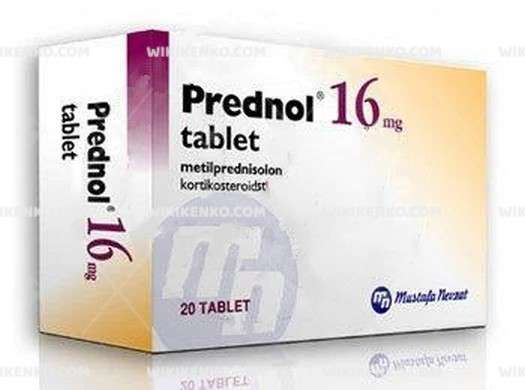
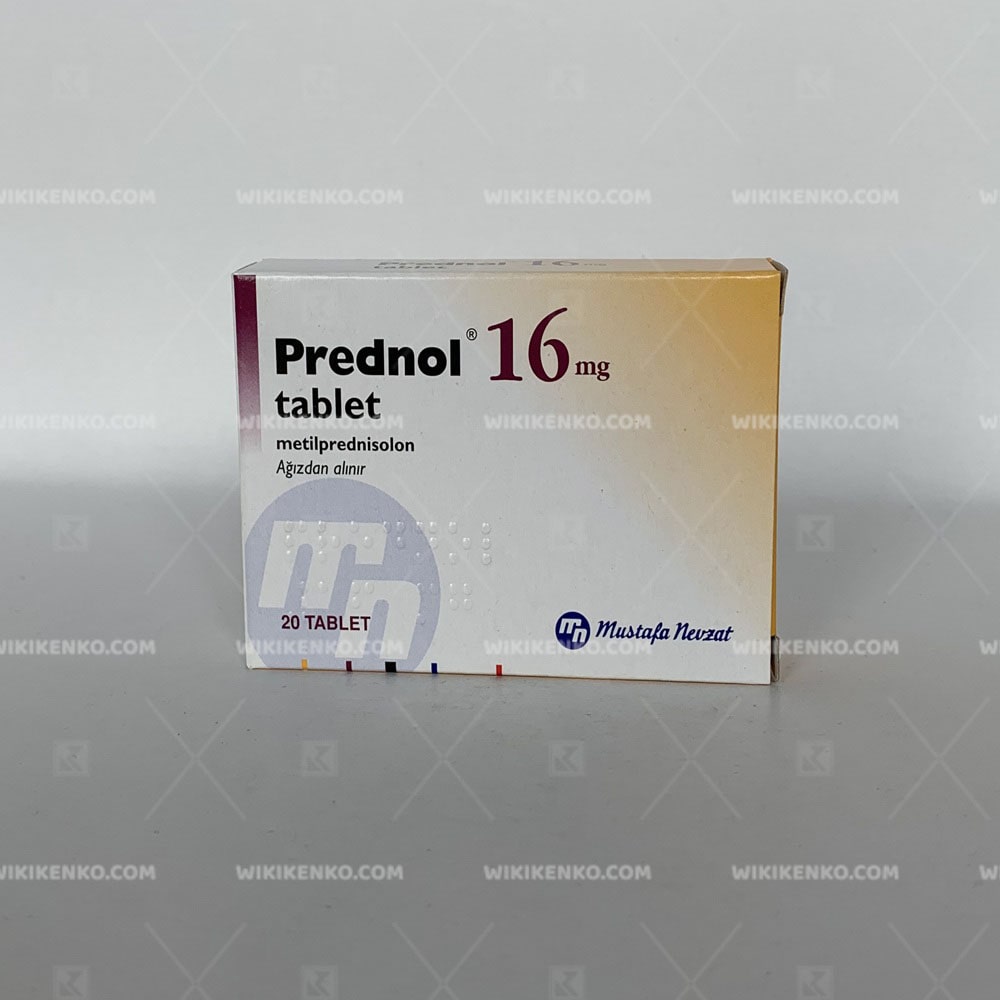

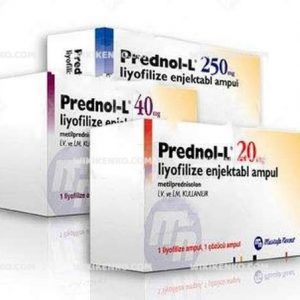
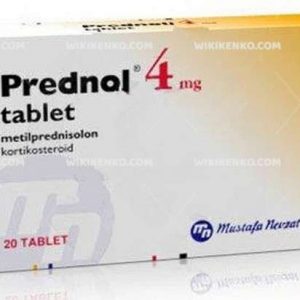
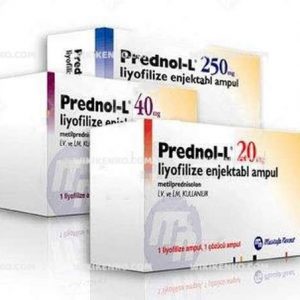
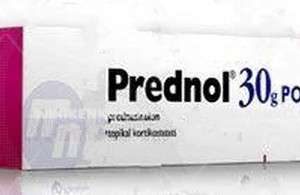

Reviews
There are no reviews yet.